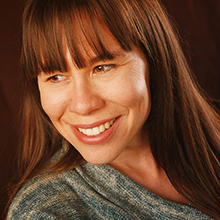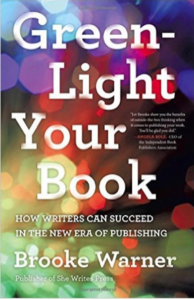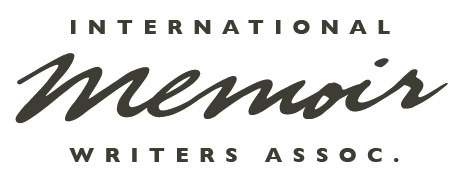 Q: She Writes Press is a very impressive endeavor. What lead you to start it up?
Q: She Writes Press is a very impressive endeavor. What lead you to start it up?
A: Thanks, Marni. I started SWP because of the climate I was witnessing in traditional publishing at the end of my tenure there. I started a coaching practice, helping authors to get published, in 2008. Suddenly I was encountering all these authors who wanted to bypass traditional publishing altogether, and I was so shocked by this because I’d come up in traditional publishing and didn’t yet understand the appeal of self-publishing. There was so much energy on the self-publishing side, and so much creativity and passion. Meanwhile, in my traditional publishing job I was experiencing the complete opposite. We were taking fewer risks. The creativity and passion I’d felt in the beginning of my career was being replaced by profit protection and a mandate to acquire “bigger” books. I had a couple of negative experiences of not having a book I really wanted to acquire pass the editorial board’s approval for reasons having to do with the author’s lack of brand or platform. So I started thinking about alternatives. I knew Kamy Wicoff, one of the founders of SheWrites.com, and I approached her with this idea for what at the time was just going to be an assisted self-publishing company. But for many reasons She Writes Press quickly became something different because it was so obvious that we were not a self- publishing company. But we also weren’t a traditional publishing company. And we’ve been occupying that gray zone—proudly—ever since.
Q: Hybrid publishing can get confusing, fast. Can you make it simpler for us?
A: It’s confusing because it’s new and still pretty undefined. There are a lot of companies out there right now that occupy this middle zone—somewhere between traditional and self-publishing—but we’re all very different. Hybrid is a catch-all term, and it includes a lot of different publishing models. What I think defines a hybrid company, currently, is that there be some sort of vetting process, that there be assistance with distribution, whether it’s traditional or otherwise, and that the company itself operate as a publishing company, and not just as a service company. If we look at those measures, then a lot of assisted self-publishing models and full-service companies (which are known to a lot of folks as vanity presses) fall out of the hybrid category and into self-publishing.
Q: Do you have any “beware of” or “just don’t do that” advice for writers seeking hybrid publishers? Is there a way to tell if a hybrid publisher is not ethical or reliable?
A: The best thing to do is to seek out authors who’ve published with these various companies and ask them about their experience. You’re going to glean a lot based on an author’s experience. You can find people so easily these days through their contact forms on their websites or through social media, and authors love to talk about their publishing experiences. Aspiring authors absolutely need to beware. There are so many companies looking to exploit authors, who are doing subpar work for authors, who don’t know the industry. The explosion of DIY publishing have brought a lot of sharks to this industry, and one of the biggest offenders happens to be an entity that’s affiliated with some pretty heavy hitters in the industry. This is disappointing because you essentially have publishing houses with good reputations who are affiliating with self-publishing entities that are known to exploit authors, and that’s of course confusing to authors too. Any author can do their due diligence, however, by checking out a company online, asking to talk to authors, and asking to talk to the person in charge at the company—hopefully the publisher or a high-level editor.
Q: I was fascinated to learn that traditional publishers have been brokering hybrid deals for years. Can you tell us a bit more about that?
A: Yes, it’s just very common that a publishing house would negotiate certain aspects of their contract so that the author pays for some parts of production, or for their own print run. What the author gets in exchange for that is a higher royalty rate, and so savvy authors may be on the lookout for hybrid deals. I don’t think the Big Five ever does these deals, but small presses have been doing them for years, and I recently spoke to someone from a university press who told me that they’re looking into ways to incorporate hybrid arrangements into their own contracts. Publishers need to find ways to alleviate their costs and their risks because publishing is otherwise largely unsustainable for the small fish out there who are looking to publish good work but are continually getting hammered by some of the more problematic areas of this business, like returns, low price points, and distribution fees.
Q: Can you help clarify the confusion about “hybrid publisher” and “hybrid author”?
A: This one is actually pretty simple, so yes! A hybrid publisher is a publishing entity that is publishing books. They offer contracts to authors. The authors typically pay for those services, though there are other models, like InkShares’s crowdfunding model. Hybrid publishers often function like traditional publishers, paying authors royalties and representing their books to the trade market. Hybrid authors are authors who have both traditionally and non-traditionally published books. These tend to be prolific authors who see the advantages to traditional and self-publishing, and can see why they might be under contract for one book with a traditional house but then publish their own work to another audience. Many career authors are hybrid authors because publishing both traditionally and non-traditionally gives them more flexibility, creative control, and income streams.
Q: And finally, where can we get your book, Green Light Your Book?

A: You can buy this wherever books are sold. Of course I’d love to recommend that authors buy my book through IndieBound or at their local bookstore, who will be able to order it if they’re not carrying it. But it is available on Amazon as well.
